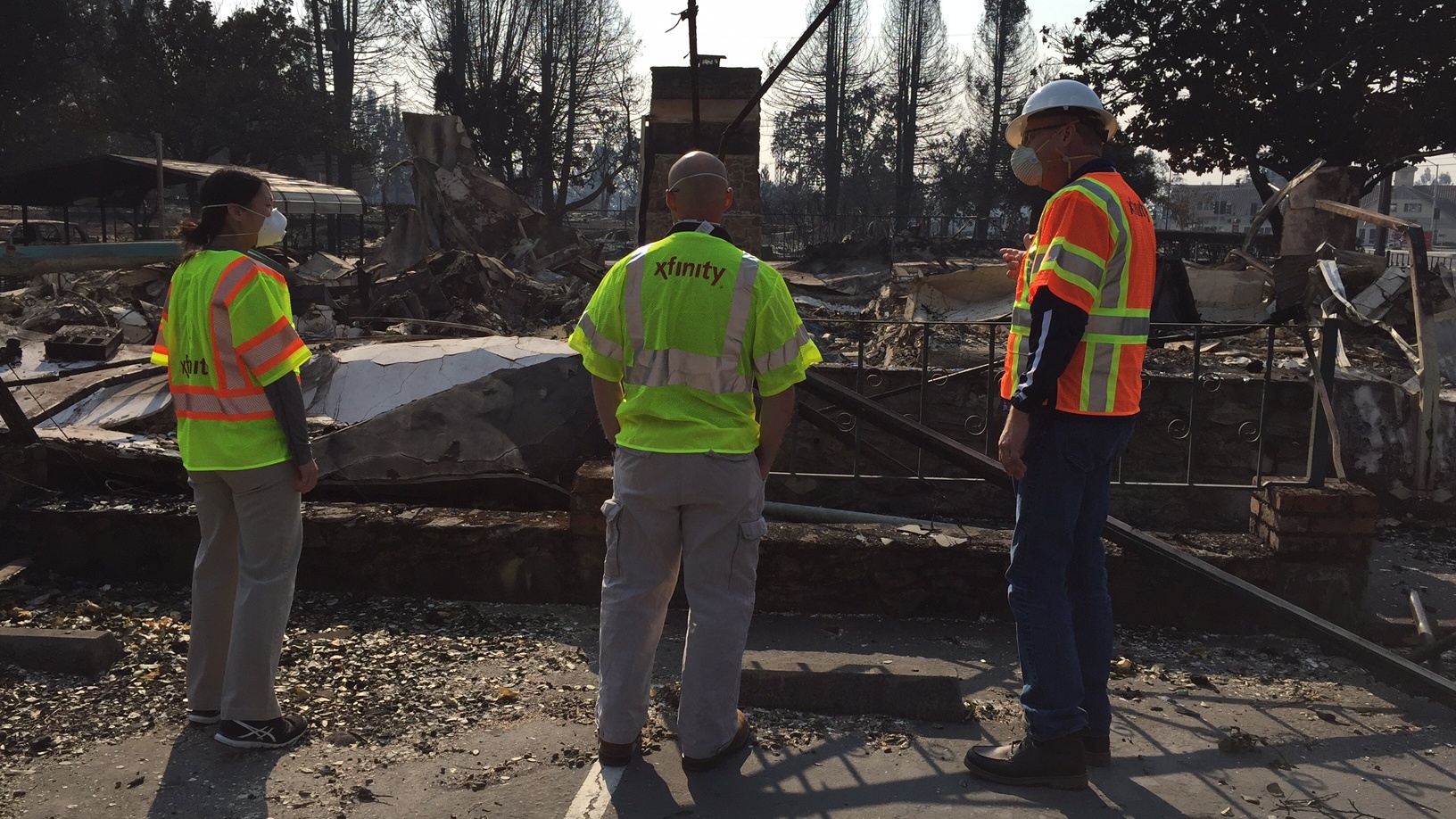Air Quality a Growing Concern in Fire Damaged Areas and Beyond

The restoration of residential and commercial services continues to be a top priority today at Comcast. But the aftermath of the devastating fires have dusted up another concern for residents living in and out of the immediate fire-ridden areas. Air quality in many parts of Northern California has been deemed unhealthy, which poses a risk with prolonged exposure.
Here are some recommendations that can help keep you safe while air quality is reduced:
- Check local air quality reports. Listen and watch for news or health warnings about smoke. The U.S. Environmental Protection Agency’s Air Quality Index (AQI) can be found here: Air Now Link
- Keep indoor air as clean as possible if you are advised to stay indoors. Keep windows and doors closed. Run an air conditioner, but keep the fresh-air intake closed and the filter clean to prevent outdoor smoke from getting inside.
- In the car, close windows and doors and run the air conditioner, with the vents closed, and the AC in “recirculate” mode.
- Avoid activities that increase indoor pollution. Burning candles, fireplaces, or gas stoves can increase indoor pollution. Vacuuming stirs up particles already inside your home, contributing to indoor pollution. Smoking also puts even more pollution into the air.
- Listen to your body and contact your healthcare provider (or 911 in the case of an emergency) if you are experiencing health symptoms.
- Stay hydrated!
Who is at greatest risk from wildfire smoke?
Smoke may worsen symptoms for people who have pre-existing health conditions and those who are particularly sensitive to air pollution. Sensitive groups include:
- Persons with asthma or other chronic respiratory disease
- Persons with cardiovascular disease
- Persons who are older than 65 years of age
- Infants and children
- Pregnant woman
- Smokers, especially those who have smoked for several years
How do you tell if wildfire smoke is affecting you or your family?
Wildfire smoke can cause the following:
- Watery or dry eyes
- Persistent cough, phlegm, wheeze, scratchy throat or irritated sinuses
- Headaches
- Shortness of breath, asthma attack or lung irritation
- Irregular heartbeat, chest pain or fatigue
- Nonfatal and fatal heart attacks
- People with chronic heart disease or lung disease such as asthma and chronic obstructive pulmonary disease (COPD) may be more likely to have serious health effects from wildfire smoke.
Register to Receive Text Alerts from Local Agencies
Simply Send A Text to 888777 with a Zip Code.
You will receive text updates from Local Authorities.
For Multiple Zip Codes, Simply Send One Zip Code at a Time